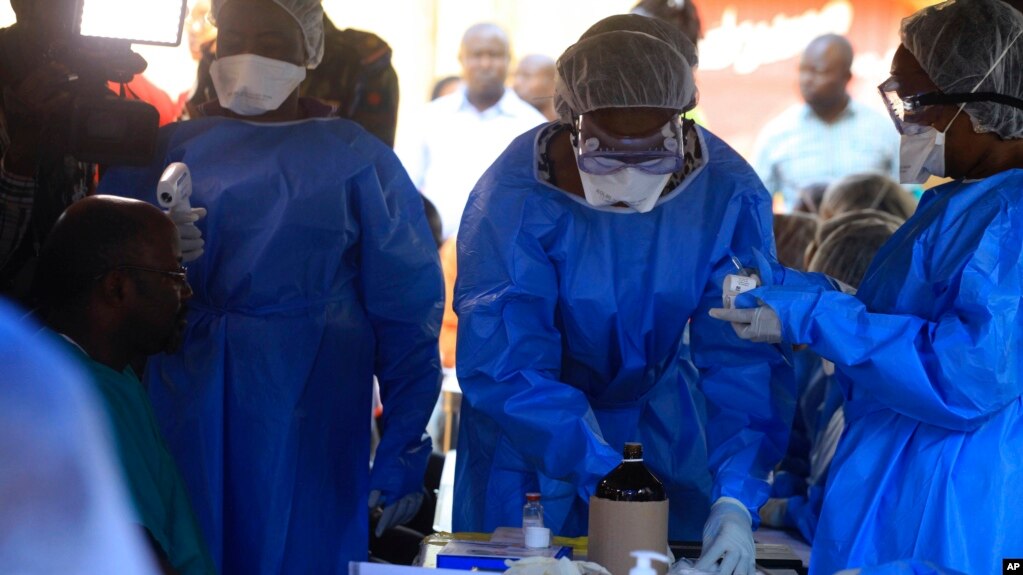Doctors found that this patient had antibodies to fight the virus in his bloodstream even after he recovered. Dr. Anthony Fauci, head of the National Institute of Allergy and Infectious Diseases at the National Institutes of Health, invited the patient to the U.S., where researchers cloned the cell that had helped him beat Ebola. "We brought the person back to the United States to draw his blood and try to clone the B cells that make the antibodies that this person had produced ... to then, essentially, clear his virus and, hopefully, protect him against any future exposure," Fauci told VOA.
Because the NIH scientists made numerous copies of that cell, it is called a
monoclonal antibody — in this case, mAB114. It's hoped that it can be used to target the Zaire strain of Ebola currently spreading in eastern Congo. Fauci said mAB114 is still experimental. "We have done a number of tests in an animal model and have shown that when you infect an animal up to five days after they become infected, and you passively transfer this antibody, you can actually protect the animals from getting sick and they recover," he said. Not all treatments that work in animals work in humans.

Health care workers from the World Health Organization prepare to give an Ebola vaccination to a front-line aid worker in Beni, Democratic Republic of the Congo, Aug 10, 2018.
Fauci's staff is currently conducting a phase one clinical trial in volunteers at the NIH hospital to make sure mAB114 is safe. So far, no one can say whether the treatment works, but due to the dire situation in Congo, and the fear the virus will spread in the armed conflict that is going on in the region, Fauci said the antibody has been given to five people with Ebola. At a news conference Tuesday, Dr. Tedros Adhanom Ghebreyesus, director-general of the World Health Organization, said he had been told they were doing well. As of now, there's no approved treatment for the disease, although there is a vaccine that protects people who may have been exposed to the virus but who are not sick.
Other experimental treatments are also being used to help end the outbreak in Congo. One of them is
ZMapp, a combination of three monoclonal antibodies. In 2016, NIH found ZMapp safe and well-tolerated, but without an outbreak, it is impossible to prove effectiveness. Fauci said another antiviral drug, remdesivir, is being used in patients with Ebola from West Africa, even though that outbreak is over. Scientists have found the Ebola virus can remain in the semen, so men are being treated to prevent further spread.


 The Science, Health, and Technology Room
The Science, Health, and Technology Room



 Reply With Quote
Reply With Quote

